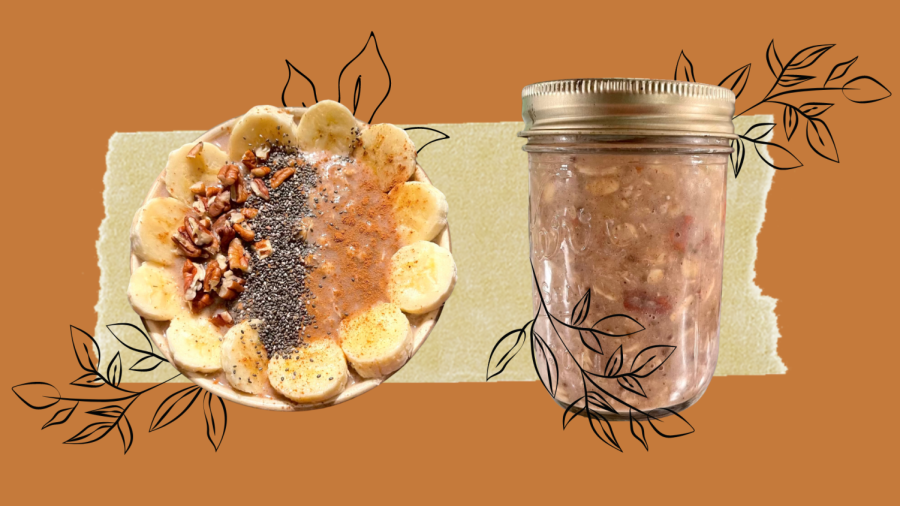
Do your eyelids droop down in class like they’re supporting sandbags? Does the prospect of just standing up from your chair seem daunting to you? You are probably suffering from fatigue.
Twenty-three percent of college students reported feeling sleepy for seven of the past seven days, according to a study conducted by John Elfein at UCLA. While the Centers for Disease Control and Prevention recommends that adults obtain at least seven hours of sleep each night, over half of the college students are getting less than six hours, according to the University of Rhode Island.
If you are among the sleep-deprived half, you might be experiencing some of the corresponding health consequences. Your mood, memory, immunity, and weight are all impaired by the dismal amount of sleep you are getting each night.
But, all hope is not lost. Making a few changes to your diet can remarkably improve the quality of your sleep and boost your energy—without needing to resort to medicinal sleep aids, processed synthetic energy drinks, or caffeine.
For example, almonds, cherries, and walnuts have high amounts of natural melatonin, which is a hormone that regulates your internal clock and signals you to go to sleep. Chamomile tea and kiwis are abundant with antioxidants and serotonin, which improve sleep quality when eaten before bed. Turkey is beneficial to eat for dinner because of its high amounts of protein and tryptophan, which induce tiredness—that’s why most people feel so sleepy after Thanksgiving dinner.
Additionally, there are foods that boost energy naturally, so you feel more awake during the day. Oatmeal is the perfect breakfast for a chronic night owl: it’s a complex carbohydrate, which means it’s a slow-burning source of energy—it supplies you for longer throughout the day.
“Oats also boost serotonin production, which can help us manage stress and enhance learning and memory function,” according to a not-for-profit health care facility, Integris Health, article. This is especially helpful when you’ve been up all night studying for midterms. Bananas are full of complex carbs, Vitamin B6, potassium, and protein. Sweet potatoes, cashews, and cinnamon are high in magnesium, which is a key ingredient for energy production.
Still, wondering how to put these ingredients together? I’ve got the perfect recipe for you.
Fortified with lots of energy-boosting ingredients like oats, bananas, and cinnamon, this simple and efficient breakfast will have you sitting up straight throughout the entire lecture.
You can put it together in the time it takes to brush your teeth.
Banana Bread Overnight Oats:
Ingredients:
1 large banana
1 cup milk
1 tablespoon of honey
1 teaspoon vanilla extract
1 teaspoon of cinnamon
⅛ – ¼ teaspoon salt (be careful, add to taste)
½ cup rolled oats
2 tablespoons chopped pecans or walnuts
1 tablespoon chia seeds
cranberries or raisins (optional)
Instructions:
- Mash the banana with a fork in a shallow bowl (it’s easier) to the desired consistency. I prefer a few chunky bits of banana mixed into my oats for added texture.
- Mix the banana, milk, and honey in the container you will store the oats in. Add in the vanilla, cinnamon, and salt. Add salt slowly, to your preferred taste. Stir until well-mixed.
- Incorporate the oats, nuts, and chia seeds. Stir to combine.
- Seal the container and place it in the fridge. Chill for at least four hours, preferably overnight.
- In the morning, pack the container for breakfast on the go, or pour it into a bowl and garnish it with fresh fruit or dried fruit, like cranberries and raisins.
Bon appetit!
"oat" - Google News
October 03, 2022 at 10:47AM
https://ift.tt/HlkZw6n
Cooking to Cure: Oat-vercome your fatigue - CSULA University Times
"oat" - Google News
https://ift.tt/ETzQlmP
https://ift.tt/NQByaf0
Bagikan Berita Ini














0 Response to "Cooking to Cure: Oat-vercome your fatigue - CSULA University Times"
Post a Comment